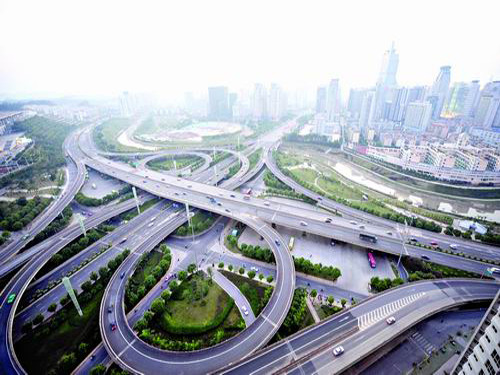With the continuous expansion of the number and scale of cities in China, a number of urban agglomerations with international influence have formed. The three representative urban agglomerations are the Beijing-Tianjin-Hebei urban agglomeration, the Yangtze River Delta urban agglomeration, and the Pearl River Delta urban agglomeration. Mask,Mask For Adult,Mask For Pediatric,Disposable Protective Mask CHANGZHOU LVSONG INTERNATIONAL TRADING CO.LTD , https://www.yuanhangsupply.com
In addition to these three urban agglomerations, the embryonic forms of urban agglomerations in other regions of China are gradually being formed, and the scale of cities is also expanding. How green and sustainable development of urban agglomerations are, and transportation is of utmost importance.
Main Problems Existing in the Comprehensive Transportation of Urban Agglomeration in China
First of all, the transportation network is not yet perfect. China's various modes of transportation are more to consider point-to-point, regional and regional connections, so the formation of urban agglomerations is also based on the so-called inter-regional transport mode to meet the needs of urban development.
Second, the level of transport services is low. China's current type and organization of transport services are more suitable for long-distance transport, and are not necessarily suitable for short- and medium-distance transport. As a result, the level of transportation services that specializes in serving urban agglomerations appears to be low.
Again, the institutional mechanism has not been straightened out. The focus of the Ministry of Transport is more on inter-regional transportation or intra-city transportation, but there are insufficient considerations on regional urban agglomeration.
Thoughts on Urban Transport Network Planning
The transportation network is an important support for the coordinated development of urbanization, an important guide for the spatial pattern of urbanization, and an important prerequisite for the integration of urban and rural development. Therefore, relevant management departments in China should systematically study and plan ahead to plan the layout and construction of an integrated urban transport network.
First, we must moderately advance the construction of an integrated transport network to meet the needs of sustainable urbanization. With the accelerating process of urbanization in the future, experts predict that more than 10 million people will be transferred to cities and towns every year, and the amount of transportation will continue to expand. Network scale, transportation capacity, and connecting nodes need to be properly planned and constructed to meet demand.
Second, we must rationally lay out an integrated transportation network in order to optimize the urban agglomeration spatial structure. In the past, the construction of urban public transport in China considered more whether to meet the needs of the current demand. Now, the relevant management departments should give full play to the guiding role of transportation and optimize the spatial distribution of cities and urban agglomerations in order to adapt to cluster urban development and urban agglomerations. The need for development.
There are mainly three levels within the urban agglomeration: the first one is the city group with intercity railways and highways as the backbone; the second one is between the urban centers and the satellite cities with municipal railways (suburban railways) and Expressways (roads) are the focus; the third is between cities and small towns focusing on ordinary provincial highways and rural roads. The integrated transportation network formed by these three levels is more adaptable, higher, and stronger.
Third, we must improve the operational efficiency of the integrated transport network to meet the needs of the development of intensive and efficient urban agglomerations. As a network plan, only by improving the operational efficiency of an integrated transportation network can the needs of different service targets be met. The efficient operation of the comprehensive transportation network mainly includes four levels: the passage between cities should be “quick and smoothâ€; the access between the downtown area and the satellite cities should be “convenient and efficientâ€; the access between cities and small towns should be “widely covered and fully "Accessibility"; transportation network node convergence should be "smooth and seamless."
Example: Tokyo Metro has a total mileage of only 300 kilometers, but the total length of rail transit serving the Tokyo metropolitan area is 2,000 kilometers, and there are more than 20 radial lines except the Yamanote Line. The service function of the Tokyo Metro Rail Transit is to serve between the downtown area and the satellite city, covering as many economic accumulation points as possible. The passage between the downtown area and the satellite cities makes the citizens feel convenient and efficient. Like the subway in the city, the suburban railways in Tokyo also show high density. Like buses, departures are only a few minutes apart.
Fourth, we must build a green and low-carbon integrated transportation network to meet the development needs of the eco-city cluster. Due to the dense population, our country has a higher demand for the development of green and low-carbon transportation. China should vigorously develop rail transit to become the backbone of the urban transportation system and actively develop public transportation in urban areas, suburbs, and cities. Encourage the development of new energy and low-emission private transportation.